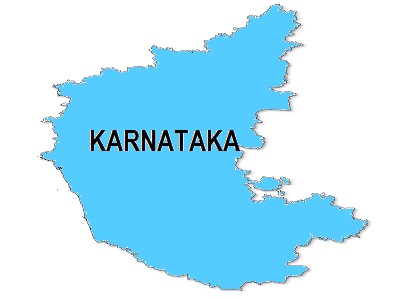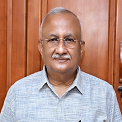Objectives
Evaluate the Panchayat rural library system in Karnataka, including
administration, resources, accessibility, funding, innovation, and community
involvement.
Assess the use of libraries for citizen services, including awareness building
and remedial education.
Gather data on user needs, satisfaction levels, and community involvement
through surveys and interviews.
Develop recommendations for improvement based on the evaluation findings,
including a plan for implementing the recommended improvements.
Prepare a final report on the implementation of the recommended
improvements.


Role of CRISP
Assist in Rural Development and Panchayat Raj
- Evaluation of the rural libraries project.
- Concurrent evaluation of MGNREGS Creches.
- Ideate on improving GPAAA: Micro Health plan at the GP level - develop a model plan after studying what has been done under GPAAA.
- Work out details of GP and SHG convergence in the Karnataka context-study what has been done in Karnataka and explore how the same can be strengthened or scaled up.
- Gram Panchayat Sports- promotion of sports in GPs.
- CRISP will be Knowledge partner in developing the World bank project.
MoU with Karnataka
Excited to announce that #CRISP has signed a MoU with the Govt. of Karnataka.
The partnership between the two aims to leverage CRISP's expertise and experience to enhance the Panchayat Raj system in Karnataka.
Public Policy India
The Quantum Hub
Policy & Development Advisory Group (PDAG)
The Convergence Foundation
Dasra
Bill & Melinda Gates Foundation
R SUBRAHMANYAM
Government of Karnataka Revenue Department
Ministry of Rural Development Government Of Karnataka
Agriculture & Horticulture Department

Action Plan
1. Rural Libraries :- Rural libraries initiative is one among the flagship initiatives of Rural Development and Panchayat Raj, Karnataka. With 5895 libraries spread across the state at the Gram Panchayat level, these institutions provide access to books, periodicals, and educational materials. They play an important role in nurturing literacy, education, and cultural awareness in rural areas. The Department has collaborated with various non-governmental organizations in supporting and enhancing the quality of service delivery through libraries. Through such a partnership with an NGO named Sikshana Foundation (and through various grants), the Department has digitized more than 90% of libraries across the state. These libraries are provided with digital equipment such as computers, smartphones, laptops etc. Furthermore, 583 libraries have been upgraded into Beacon Libraries, disabled friendly libraries equipped with materials such as braille books and magnifiers. CRISP’s role in the project is to study various aspects of the program, including their administration, resources, accessibility, funding patterns and requirements, community involvement, any innovative practices in place and provide recommendations aimed at enhancing the program effectiveness.
2. Concurrent evaluation of Crèches :- Provision of effective day care for young children is essential as it provides support to both mothers and young children. Lack of proper day-care services (crèches) is, often, a deterrent for women to go out and work. Expanding quality childcare can yield multi-generational impacts by promoting equity and improving women’s employment and productivity, child outcomes, and overall economic development.
3. Gram Panchayat – Self-Help Group Convergence in Solid Waste Management :- In rural areas of Karnataka, Solid Waste Management (SWM) initiative led by Self-Help Group (SHG) women began in the year 2021. The Department of Rural Development and Panchayati Raj issued directives to the Gram Panchayats (GPs) that the SHG women be engaged in every stage of the SWM process, including collection, transportation, segregation, and processing of waste, by operating within an enterprise model. Over 13000 SHG women have been trained as drivers and segregation workers, thereby leading to the creation of green jobs. In the absence of SWM practices, waste disposal in villages typically involves either burning waste, which emits harmful pollutants, or the haphazard dumping of waste in open spaces, drains, and waterways. However, with the implementation of proper SWM practices, waste is now to be systematically collected, sorted, and disposed of. This initiative not only serves to mitigate environmental pollution but also promotes income generation for the SHG women managing solid SWM operations. This is achieved through the sale of recyclable materials and the collection of service fees from both residents and commercial establishments.
4. Rajiv Gandhi Panchayat Raj Fellowship :- CRISP is hand holding the department with the recruitment and selection process for the Rajiv Gandhi Panchayat Raj Fellowship and the training of the fellows. CRISP will act as a facilitator in preparing the modules for the Orientation training programme.
5. Study of Rural Self Employment Training Institutes (RSETIs) in Karnataka :-In 2009, the Ministry of Rural Development took up the initiative of RSETIs inspired by the RUDSETI model of entrepreneurship training. Managed by banks, and supported by the Union and State government, these institutes have been providing entrepreneurship development and vocational training to lakhs of rural youth in over sixty skill areas. Currently, Karnataka has 31 RSETIs. CRISP is tasked with studying the functioning and performance of these institutes, with a major focus on the impact of skill training.
6. District Outreach Programme for all the flagship projects of Department of Rural Development and Panchayat Raj (RDPR), Karnataka :- Since January 2023, Karnataka CRISP team has been working on the flagship initiatives of the Rural Development and Panchayat Raj Department. These include rural libraries, crèches, GP-SHG convergence in solid waste management, and Gram Panchayat Arogya Amruta Abhiyana, all under the purview of the MoU between the Department and CRISP. With extensive field visits in more than 100 Gram Panchayats across 27 districts, the team has acquired an in-depth understanding of these initiatives. Now, the Department is seeking CRISP's broader engagement to strengthen different aspects of PRIs and work towards enhancing local governance holistically.
Read more..
Karnataka Team

S M Vijayanand
MENTOR
Worked as Secretary to Government of India and Chief Secretary Govt of Kerala, expert in Panchayat Raj and rural development Read more...

Lalita Pulavarti
STATE LEAD
Dr Lalita Pulavarti has over twenty-five years of experience in quantitative and qualitative social research spanning gender, grassroots development, Read more...

DAKSHA JAIN
SENIOR ASSOCIATE
Daksha is a B.com Honours graduate from Shriram College of Commerce (SRCC), University of Delhi. She is originally from Mangalore, Karnataka and has previously worked in the Banking industry providing Investment advisory and Portfolio Management services to the High-Net-Worth individuals of the Bank. Read more...
